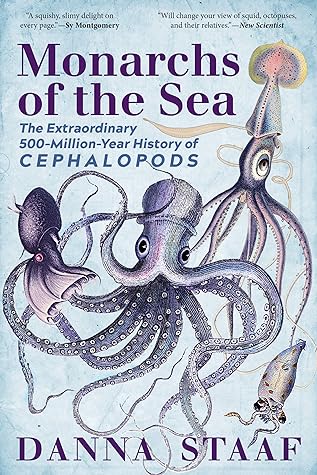More on this book
Kindle Notes & Highlights
by
Danna Staaf
Read between
August 29 - September 22, 2023
What’s more, we know that meteorites can (and did!) bang into Mars, knock off planetary chunks, and send them hurtling Earthward. And young Mars of 4 billion years ago was a much friendlier environment than young Earth, with a pleasant temperature and a nice combination of land and water. A number of scientists believe it is possible—even probable—that life, either complex molecules or actual cells, evolved first on Mars and then seeded Earth.
I hope he was kinder to the local people than many fossil collectors and scientists have been throughout history. Some ammonoids of North America, unfortunately, are among the many fossils that have been appropriated from their rightful owners without remuneration.
“The practice of taking valuable fossils from conquered lands or weaker people is not new, and the powerful emotions evoked by such acquisitions are not uniquely modern. Contention arises whenever rare and valuable geological objects come to light,” wrote the Stanford scholar Adrienne Mayor, who focuses on ancient interpretations of fossils before the advent of the modern science of paleontology. “Large vertebrate fossils have long been tied to cultural identities and power inequalities. Those same links persist in modern-day fossil disputes in North America, in clashes between authorities and
...more
More recently, in the 1920s, the Gobi Desert saw a “bone rush” of North American paleontologists excavating dinosaur fossils and shipping them back home. Mayor describes the consequence succinctly: “The Chinese banned Western paleontologists for the next 80 years, until 1986.”
Coconut octopuses can make themselves look like coconuts even without the visual aid, by gathering most of their arms around their body to make a rough sphere. They can then balance on just two of their arms and “walk” along the ocean floor, a very un-octopus look that could be mistaken for a coconut rolling along the ground.
It’s not unusual to overhear people guess or assume that the giant Pacific octopus is endangered, simply because it’s large and beautiful (a tragic reflection on what it means to be a large, beautiful species in the Anthropocene). But with its prolific procreation, speedy growth, and healthy environments, this species is doing quite well.


